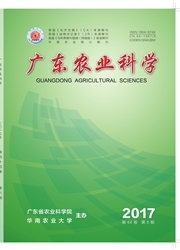

 中文摘要:
中文摘要:
从系统科学理论视角出发,将城乡协调发展视为一个由经济、社会、人口、空间和资源环境等构成的复合系统,并对其进行科学解析.借鉴系统协调度分析思路,构建区域城乡协调发展系统评价模型.并以江苏2002-2011年城乡协调发展情况为例进行实证分析,实证研究证明该模型能够更深入地量化揭示区域城乡协调发展状况,从而为相关策略的制定与选择提供合理的分析视角和决策依据.
 英文摘要:
英文摘要:
From the perspective of complex system, urban-rural coordinated development can be seen as a complex system composed of economic, society, population, space, resourees and environment. Based on the analysis of the system, referencing the analysis approach of system coordination degree model, the evaluation model for regional urban-rural coordinated development is formulated. For illustrative purpose, an empirical analysis on the coordinated development evaluation of Jiangsu in 2002-2011 is given to verify the applicability of the model. The empirical research testifies that the system evaluation model and the corresponding caleulating method can express quantitatively the status of coordinating development of regional urban-rural system with more insights, for providing rational analysis perspective and scientific suggestions for correlative decision-making.
 同期刊论文项目
同期刊论文项目
 同项目期刊论文
同项目期刊论文
 New product development period and competitive advantage resulting from manufacturing-marketing inte
New product development period and competitive advantage resulting from manufacturing-marketing inte Computational Experiment Study on Selection Mechanism of Project Delivery Method Based on Complex Fa
Computational Experiment Study on Selection Mechanism of Project Delivery Method Based on Complex Fa Acomparative analysis of the antecedents of green purchasing behaviors among youngadults in China an
Acomparative analysis of the antecedents of green purchasing behaviors among youngadults in China an The Comparison Analysis of Total Factor Productivity and Eco-efficiency in China’s Cement Manufactur
The Comparison Analysis of Total Factor Productivity and Eco-efficiency in China’s Cement Manufactur Energy Consumption, Industrial Development and Environmental Pollution: the Case of China’s 36 Indus
Energy Consumption, Industrial Development and Environmental Pollution: the Case of China’s 36 Indus 期刊信息
期刊信息
